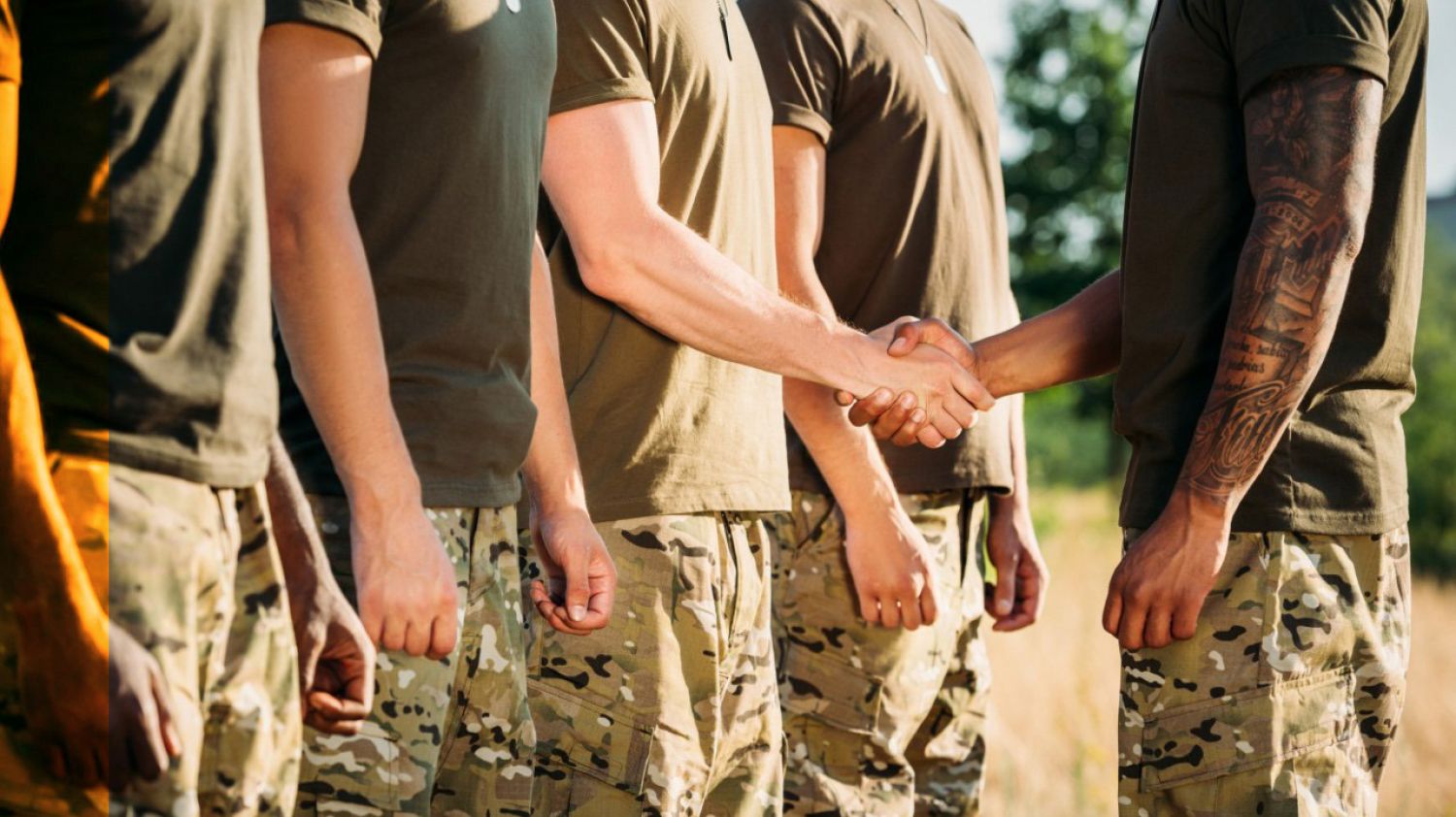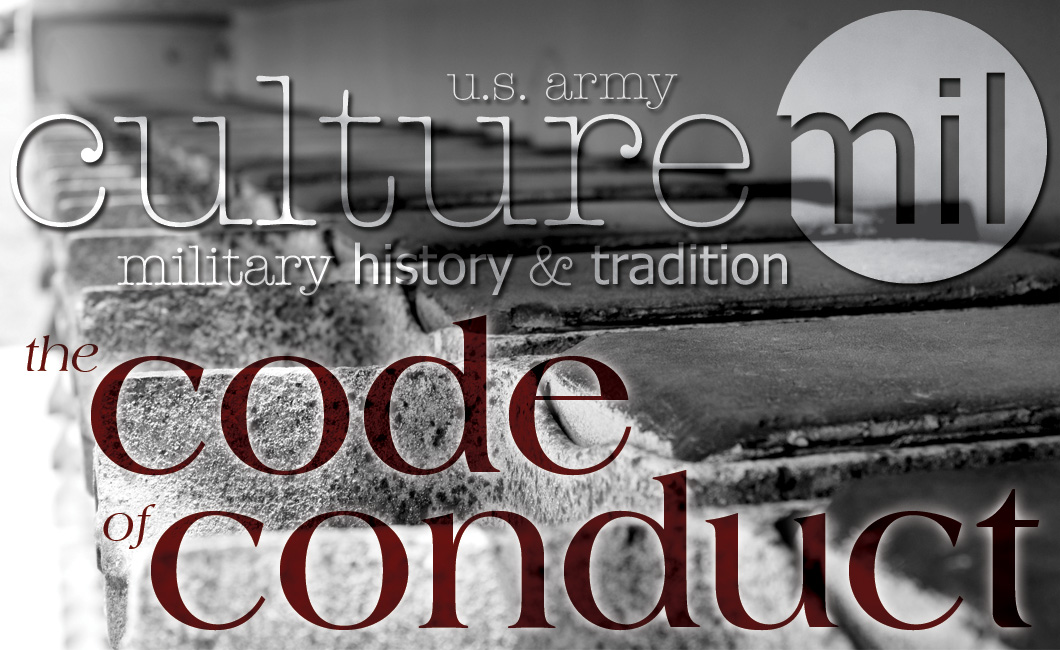- Personal histories
- Self-criticisms
- Answering questionnaires
- Written or oral apologies or confessions
- Appeal for parole or surrender
- Creation of propaganda recordings
- Providing any other material usable for the purpose of propaganda
- Broadcasting appeals to other POWs
- Communicating to the detriment of the United State, its Armed Forces, its allies or other POWs on behalf of the enemy
- http://www.armystudyguide.com/content/army_board_study_guide_topics/code_of_conduct/code-of-conduct-indepth.shtml
- https://www.ausa.org/code-conduct
- http://www.history.com/topics/american-revolution/american-revolution-history
- http://www.armystudyguide.com/content/army_board_study_guide_topics/code_of_conduct/code-of-conduct-study-gui.shtml
- https://thewisdomwarrior.com/bohdi-sanders/bohdi-sanders-credentials/
Written by Jenifer Chrisman on June 19, 2017.
A warrior is the protector of his family and those in need.
A warrior is the guardian of the ways of honor and courage.
A warrior will not put his own desires above what is right.
Above all, a warrior is always motivated by his utmost duty.
– Dr. Bohdi Sanders (The Wisdom Warrior)
The Code of Conduct defines how Service Members are to act if they should be taken captive and held as a prisoner of war, as well as if they are held during peace time by terrorists. This high standard of behavior evolved through the deeds and experiences of those who have served, beginning with the American Revolutionary War (1775-1783).
Established on August 17, 1955, under the Eisenhower Administration, The Code of Conduct is covered by Army Regulation AR 350-30. DoW Directive No. 1300.7 reaffirmed the code on July 8, 1964. Article V was amended on November 3, 1977, by President Jimmy Carter and Articles I, II and VI were amended on March 28, 1988 by President Ronald Reagan.
The six articles of The Code of Conduct are an ethical guide:
I. I am an American fighting in the forces that guard my country and our way of life, I am prepared to give my life in their defense. No matter the circumstance, whether it be in peace time or war, alone or in company, in captivity or while evading, all Service Members are held to this highest of standards.
II. I will never surrender of my own free will. If in command, I will never surrender the members of my command while they still have the means to resist.
Individually, Service Members must never voluntarily surrender unless continued fighting would lead not only to death, but to no significant enemy loss. When all other avenues of resistance or escape have been exhausted, dishonor by capture would not be implied. For a commander, this means never surrendering command, continuing to fight to break out or evade so long as there are means to resist.
III. If I am captured, I will continue to resist by all means available. I will make every effort to escape and aid others to escape. I will accept neither parole nor special favors from the enemy.
Should captivity occur, it is still incumbent upon the Service Member to resist, attempt to escape and aid others in their attempt to escape. This should not take the form of undue harassment as retaliation against the Service Member or other captives is likely to occur. Governed by both The Code of Conduct and the Uniform Code of Military Justice, provisions also have been made under the Geneva Convention which prohibits execution of POWs for attempting to escape, which they are bound by duty to do. This code extends to tactics used by captors to gain military information and undermine resistance, to include torture and/or mistreatment (mental and physical), medical neglect, privileges or special favors. Only if such actions would lead to a successful effort to escape or it is essential to the POW’s life or the life of another POW may privileges/special favors me accepted.
IV. If I become a prisoner of war, I will keep faith with my fellow prisoners. I will give no information nor take part in any action which might be harmful to my comrades. If I am senior, I will take command. If not, I will obey the lawful orders of those appointed over me and will back them up in every way.
Any action taken or information given that is detrimental to fellow POWs, the POW organization within the camp or POW command is strictly forbidden. It also is the responsibility of the highest ranking officer, no matter their branch of service, to take command of the POW organization and work toward escape and the safety of the POWs. Only if the senior officer is incapacitated would the next highest ranking officer take over. If there are no officers, per the Geneva Convention, a “prisoner representative” among the enlisted must be elected, but that person only acts as spokesperson. With or without an officer in change, it is the responsibility of all POWs to work within and support the POW organization.
V. Should I become a prisoner of war, I am required to give name, rank, service number, and date of birth. I will evade answering further questions to the utmost of my ability. I will make no oral or written statements disloyal to my country and its allies.
The Geneva Convention requires name, rank, service number and date of birth be given, but POWs should give out no further information not pertaining to health or welfare, the filling out of a Geneva Convention “capture card” or letters home, to include:
Statements made or confessions signed by a POW used by the enemy changes the POW’s status to a “war criminal.” Such a conviction can revoke the person’s rights under the Geneva Convention, as well as rescinding rights to repatriation until a prison sentence is served.
VI. I will never forget that I am an American fighting for freedom, responsible for my actions, and dedicated to the principles which made my country free. I will trust in my God and in the United States of America.
It is the responsibility of each Service Member to maintain the highest standards, in peace time, war or as a detainee. For POWs, their actions will be reviewed upon repatriation to determine their conduct and circumstances of capture. This review is to both investigate possible misconduct and recognize meritorious performance, taking into account the conditions of their captivity and their rights as an individual.
Surviving captivity requires a strong belief in country, justice and family, keeping faith, a dedicated determination and immeasurable courage. Life in a prisoner of war camp, even under the best of conditions, is harsh. Following The Code of Conduct by preserving hope, working together and maintaining honor helps sustain a prisoner of war throughout detention.
Sources:



